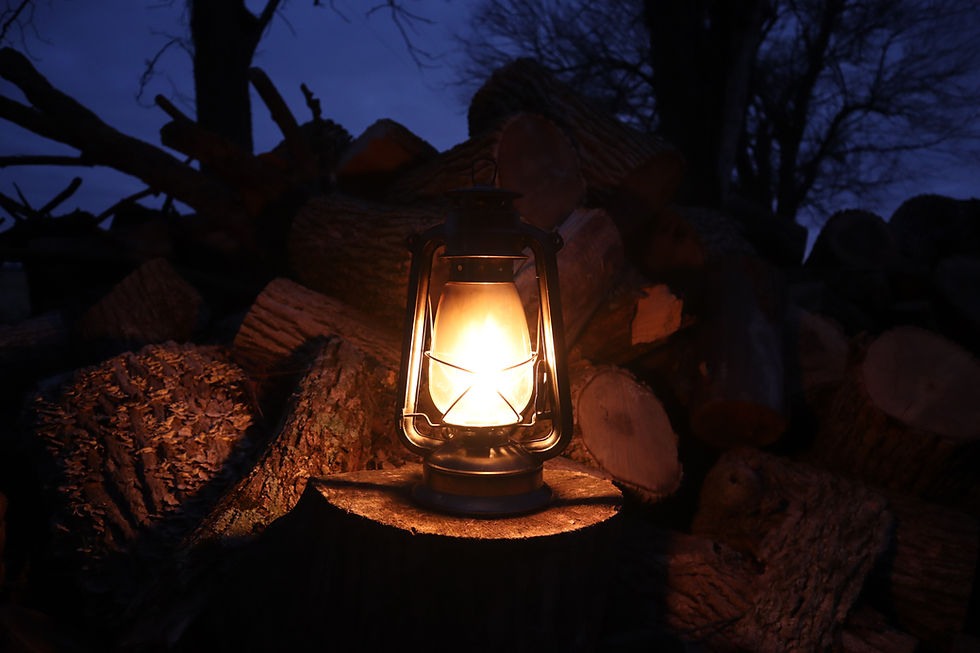What a strange question! However, light pollution is as real in your garden as chemical pesticides.
Light pollution in gardens refers to the excessive or misdirected artificial light that interferes with the natural darkness of the night sky and can have negative effects on both the environment and human health.

Light pollution can impact gardens in various ways, and it's important to address it to create a more ecologically friendly and aesthetically pleasing outdoor space. Here's how light pollution can affect gardens and what you can do to mitigate its effects:
Effects of Light Pollution in Gardens:
Disruption of Nocturnal Wildlife: Artificial light at night can disrupt the natural behaviours of nocturnal wildlife such as insects, birds, and mammals. Some animals are attracted to lights, while others may avoid well-lit areas, affecting their feeding, breeding, and migration patterns. Think of all the mosquitoes a bat can eat in one night in darkness, or an owl can munch on that rat that has been visiting your composter!
Altered Plant Growth: Certain plants require periods of uninterrupted darkness for proper growth and development. Light pollution can interfere with these natural light cycles, potentially affecting the health of plants.
Astronomical Visibility: Excessive light pollution reduces the visibility of celestial objects in the night sky, making it difficult to observe stars, planets, and other astronomical phenomena from your garden.
Energy Waste: Misdirected or excessive outdoor lighting wastes energy and contributes to higher electricity bills and increased carbon emissions.
Mitigation Strategies to avoid or minimize light pollution in your garden:
Use Shielded Fixtures: Choose outdoor lighting fixtures that direct light downward, preventing light from being emitted upward or outward. This reduces the amount of light that contributes to skyglow and glare.
Install Motion Sensors: Use motion-activated lighting in areas where safety and security are a concern. This way, lights are only activated when needed and are not left on unnecessarily.
Use Warm-Coloured Lights: Opt for warm-coloured LED lights with a colour temperature of around 2700K. These lights are less disruptive to wildlife and have a softer, more natural appearance.
Employ Timers and Dimmers: Set up timers or dimmers to control the intensity and duration of outdoor lighting. This can help reduce overall light output during nighttime hours.
Create Dark-Sky Zones: Designate certain areas of your garden as dark-sky zones where artificial lighting is minimized or eliminated altogether. This allows for better stargazing and reduces disruption to wildlife.
Educate and Raise Awareness: Share information about the impacts of light pollution with neighbors, friends, and community members. Encourage responsible outdoor lighting practices.
Plant Trees and Shrubs: Strategically planting trees and shrubs around your garden can help block or filter out unwanted light, creating a more natural and subdued nighttime environment.
Use Curtains or Shades: If you have windows facing your garden, use curtains or shades to prevent indoor light from spilling outside.
Advocate for Local Regulations: Support or advocate for local ordinances or regulations that address light pollution, such as requiring shielded outdoor lighting fixtures in your community.
Be Mindful of Garden Lighting Design: When designing outdoor lighting in your garden, focus on functionality and aesthetics while minimizing light spill and glare.
By taking these measures to reduce light pollution in your garden, you can create a space that is more harmonious with the natural environment, supports nocturnal wildlife, and enhances the experience of enjoying the night sky.
For more information about Dark-Sky programs, visit the RASC - Royal Astronomical Society of Canada.



Comments